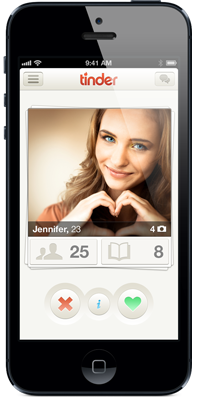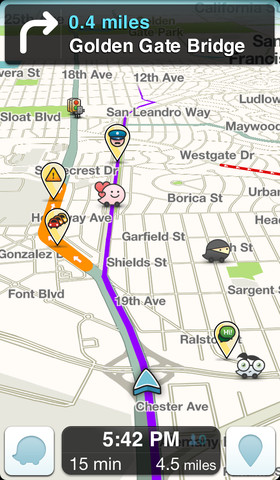Let’s face it: location-enabled apps are not going anywhere. With more than 770 million GPS-enabled smartphones worldwide, a new crop of geo-location apps are announced every month. Regardless of user hesitation and drawn out privacy battles, which includes a recently proposed “Apps Act” to make privacy policies more transparent, a continued surge in mobile traffic means that location-enabled apps are bound to be a permanent fixture on smartphones. So if you have yet to embrace geo-location, here are four free apps to help ease into the inevitable.

Ribbon
While living in the Fiji Islands, Ribbon founder and California native Tony Alfaro resorted to using an excel spreadsheet to keep track of friends and family when he made his annual trips to the U.S. So Alfaro hatched a plan to coordinate his future trips with travel plans of friends and professionals by combining a calendar with Facebook‘s social graph.
The “Ribbon feed” allows users to see future trips, invite others along as well as see friends’ trips displayed with pins using a “TimeMap.” The app also organizes trips by city, eliminating privacy hesitations about revealing exact locations.
Rather than perusing Facebook to see which friends are living where, you can use Ribbon to organize and plan meet-ups with old college roommates, colleagues and friends.
The app also allows you to manage privacy settings to allow certain people to see your trips, naturally filtering out those residual Facebook friends you haven’t gotten around to unfriending. Though it’s only available for iOS at the moment, an Android release is expected this month.
Link: Ribbon [iTunes]

Tinder
Tinder, a dating app that rolls off the tongue and easily doubles as a verb, has propagated the idea of meeting potential hook-ups or dates through an anonymous game of “hot or not.” It’s a simple concept of matching geo-located users by pressing a green heart to like or a red X to move on.
Once two users are matched, the app introduces the users in a private chatroom to carry on a conversation. There are no profiles involved, only photos usually grabbed from Facebook, shared interests and friends, distance and sexual orientation.
“What we tried to do is emulate how the real world works,” says Tinder co-founder and CMO Justin Mateen. “The first thing we notice when we meet someone is their physical appearance and the next thing that naturally happens is we try to find some similarities,” he says, alluding to the shared interest and common friends features.
Similar to Grindr with a hint of Chat Roulette, Tinder allows the bashful to feel more confident about the privacy that comes with exploring the app and thus, captures a larger audience in the idea of meeting someone virtually. With no knowledge of the competition, users can like a person without feeling rejected since the only way to find out is if two users are matched. With more than 20 million users, a sleek interface and a game-like quality, Tinder doubles as a hipper, real-time version of online dating and triples as a fun game to pass time while waiting for the subway train or on a particularly mundane night at the bar. The team is expected to launch a LinkedIn-type professional version in the near future.
Link: Tinder [iTunes]

Waze
The Israeli-based startup has gained traction from Facebook’s rumored $1 billion acquisition, but the mapping app’s ability to share crowd-sourced, real-time traffic tips is enough to warrant its own attention. Part of the app’s success was due to iPhone users’ mass exodus from last year’s botched release of Apple Maps, but Waze also won best overall app at the 2013 Global Mobile Awards.
Aside from navigating, the app uses fun emoticons to alert users about impending road delays, accidents, traffic jams as well as police traps. The app even offers drivers alternate routes and directions to the nearest, cheapest gas stations.
But there’s no need for texting while driving: By merely driving with the app open, users automatically contribute real-time traffic data to the Waze community.
The app also includes a feature to let drivers send a link to a live map to show real-time location and estimated time of arrival. Who needs Larry David’s car periscope when there’s an app for that?
Links: Waze [iTunes] | Waze [Google Play]

Airbnb
Airbnb, a startup that connects people with temporary housing while traveling, has been around since 2007 — but only more recently has the team focused on a mobile app.
In the last eight months, Airbnb has seen a 38% increase in mobile traffic, and earlier this week announced new features for its Android app in order to increase more reservations worldwide.
The iOS and Android apps now make it convenient for hosts to pre-approve, request more information or deny an interested guest; a calendar option is included to manage reservations as well.
Concerned about privacy issues? Craiglist, this is not. Airbnb verifies featured properties, offers professional photography services for hosts, and tracks user reviews. Featuring properties in more than 30,000 cities and 192 countries, Airbnb is one of the best alternatives for cheap accommodations while traveling.

